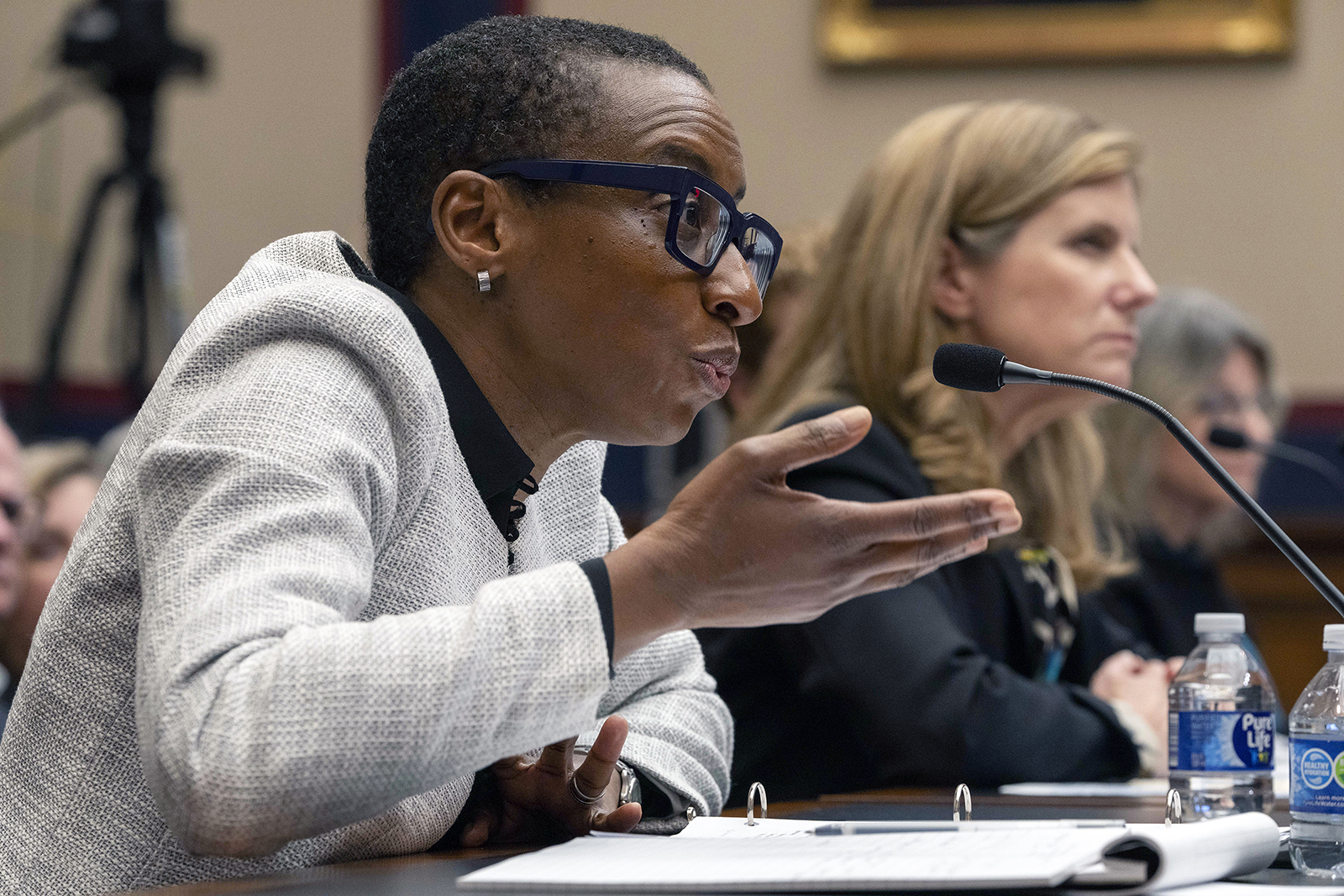(RNS) — Two Harvard University task forces set up in the wake of the turmoil on campus amid the Israel-Hamas war have found a campus climate rife with discrimination and harassment directed at Israeli, Jewish, Palestinian and Arab students.
The two task forces — one on combating antisemitism and the other on countering anti-Muslim and anti-Arab bias — issued preliminary recommendations this week that document pervasive intolerance, shunning, harassment and intimidation on campus.
The antisemitism task force, headed by Derek Penslar, a professor of Jewish history there, found the situation of Israeli students on campus particularly “dire,” with faculty members and teaching fellows discriminating against or harassing students because they are Israeli or have pro-Israel views.
More generally it found that extracurricular student life is characterized by “political litmus tests” that make it impossible for some Jewish students to participate.
The task forces’ preliminary recommendations focused on actionable items the university could take to improve the quality of life for Jewish and Muslim students, including more anti-harassment training, a high-profile series of talks that model respectful disagreement and the expansion of kosher dining options.
The task force on combatting anti-Muslim bias found that Palestinian students felt erased on campus, and Muslim women wearing hijab or keffiyehs reported verbal harassment, being called “terrorists” and even being spat upon.
It also documented instances of “doxxing,” a form of intimidation in which a person’s personal information and photos are published widely without their consent (typically on the sides of trucks driving through campus). It described doxxing as an “abhorrent activity” and urged the university to denounce it.
The anti-Muslim task force also recommended that Harvard schools promote clear information regarding the policies and procedures for filing formal complaints, provide additional prayer spaces for Muslim students and hire a visiting professor in Palestinian studies.

Harvard President Claudine Gay, left, speaks as University of Pennsylvania President Liz Magill listens, during a hearing of the House Committee on Education on Capitol Hill, Dec. 5, 2023, in Washington. (AP Photo/Mark Schiefelbein)
The task forces were set up in February under interim President Alan Garber after the resignation of Harvard’s president, Claudine Gay. Gay had appeared in congressional testimony where critics said she gave legalistic answers to Republican lawmakers on whether a call for genocide on campus would be considered antisemitic. University of Pennsylvania President Liz Magill also resigned after her appearance before Congress was seen by many as evasive.
Pro-Palestinian protests and encampments engulfed many Ivy League colleges and universities this past semester, leading in some cases to clashes with police and mass arrests of students and faculty.
Rabbi Jason Rubenstein, executive director of the Harvard chapter of Jewish student group Hillel, wrote in a letter to Harvard’s Jewish community Thursday (June 27), that the antisemitism task force’s preliminary recommendations were “incomplete” and are unlikely to materially improve the situation of Jewish students in the coming fall term.
“By their own admission, these recommendations are short-term, and thus do not address the deep-seated and long-standing elements of the university’s culture and procedures that nurtured the intolerance that burst into view after October 7,” Rubenstein wrote.
Both groups reported they had conducted dozens of listening sessions with students and faculty.
The preliminary recommendations did not address the question of whether anti-Zionism is a form of antisemitism. It gave no mention of harassment faced by anti-Zionist Jewish students on campus.
Harvard last month said it will no longer weigh in on public matters that don’t impact the Ivy League school’s core function.















